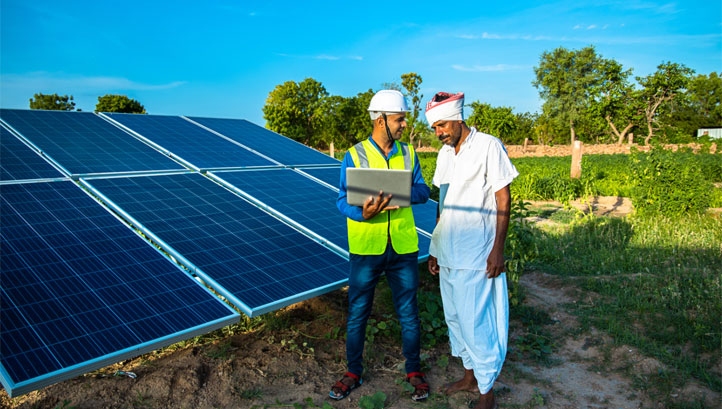Global construction professionals gathered online at a special FIDIC climate webinar on 19 October 2021 to discuss FIDIC’s position on climate change matters and to highlight the forthcoming FIDIC Climate Change Charter, which is due to be launched next month.
Taking place less than a month before the COP26 global climate change conference in Glasgow, the webinar was chaired by Tracey Ryan, managing director, Aurecon New Zealand and chair of the FIDIC Sustainable Development Committee. During the event, attendees heard a passionate call from FIDIC president Tony Barry for engineers to be more vocal on net zero and not be afraid to take a leadership position on the issue. This included publicly calling out negative bahaviours where necessary, he said.
Speakers at the event, which was attended by around 350 industry professionals, included Robert Spencer, director, sustainable development, AECOM UK and vice-chair of the FIDIC Sustainable Development Committee, Natalie Muir, general manager – water and environment at Cardno and vice-chair of the FIDIC Sustainable Development Committee, Idriss Kathrada, associate director at Novasirhe and Stéphanie Groen, director, coastal and climate change – Asia at Aurecon. Also in attendance were FIDIC president Anthony Barry and chief executive Nelson Ogunshakin.
Introducing the webinar, FIDIC president Tony Barry highlighted the importance of sustainability and the net zero agenda for FIDIC and he was looking forward to November’s launch of the FIDIC Climate Change Charter and to hearing about the charter from speakers at the webinar.
Speaking first, Robert Spencer, director, sustainable development, AECOM UK and vice-chair of the FIDIC Sustainable Development Committee, said that FIDIC could have a “massive impact on addressing climate change” and the soon-to-be-published FIDIC Climate Change Charter was set to make a real difference in tackling the climate crisis. Spencer said: “There are three key areas to highlight from the charter. One, that FIDIC is committed to reducing emissions. Two, that we want the industry to work together to reduce carbon and develop more resilient solutions and three, we want to supporting climate change adaptation.”
The FIDIC Climate Change Charter would provide a focal point for sharing and promoting best practice around net zero and climate change, said Spencer, who also highlighted that the charter would outline a series of suggested actions to be taken by FIDIC itself, FIDIC member associations, project teams and schemes, companies and also individual professional engineers. Spencer said that there was no limit to what engineers could achieve in terms of creating low-carbon designs and projects and they had a key role to play in achieving net zero.
Idriss Kathrada, associate director at Novasirhe and a member of the FIDIC Sustainable Development Committee, said that FIDIC had a long-standing involvement in the COP climate conferences and was also working with the UN, multilateral development banks and NGOs around sustainability issues. The importance of working in partnership was paramount, Kathrada said, and FIDIC was key to that.
Stéphanie Groen, director, coastal and climate change – Asia at Aurecon, highlighted the importance of embracing biodiversity and working with organisations in that area. “Nature and biodiversity is crucial in the world meeting net zero,” she said. Natalie Muir, general manager – water and environment at Cardno and vice-chair of the FIDIC Sustainable Development Committee, agreed, saying that cross-sector working was crucial and the new charter would help the industry achieve this. “we also need to try and influence those we work with, especially cliants and politicians and take the climate agenda to them,” said Muir.
The investment debate around sustainability and the role that finance plays was also highlighted by Stéphanie Groen in response to questions raised by the audience on the lack of investment in green energy and other sustainable solutions. Robert Spencer said that procurement was an important tool in encouraging more investment in sustainable solutions and should be used to incentivise net zero solutions that also provided value for money for clients. Once again, the new FIDIC Climate Change Charter would play a key role in encouraging global industry debate around this and other key sustainability issues.
Summing up the webinar, FIDIC president Tony Barry stressed the urgency of the task ahead on net zero. “We have a lot to do but it is absolutely critical that engineers take a lead on this. We need to lead as a profession, be bolder and call out publicly where behaviours need changing,” he said.

